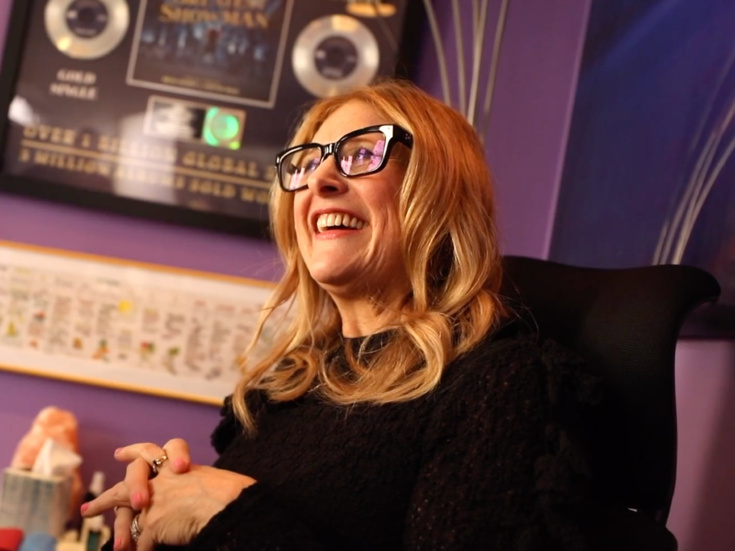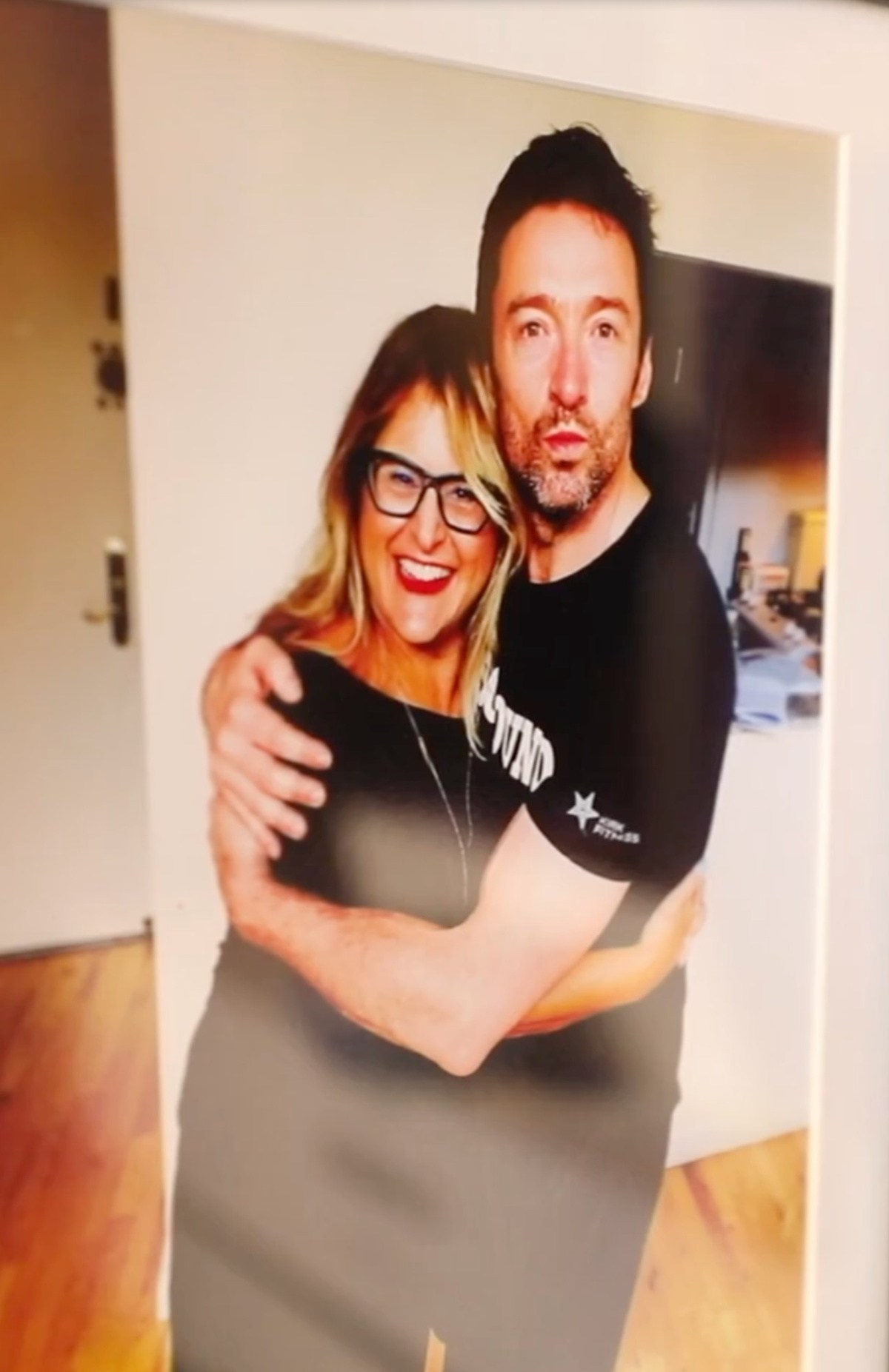Liz Caplan on How She Became the Vocal Guru of Broadway and Hollywood

Liz Caplan wears her storied resume on her studio walls. Over here is a poster of Dear Evan Hansen, signed by its Tony-winning star Ben Platt. Over there you see a framed photo of her cuddling Hugh Jackman. Then there’s the endless library of songbooks from any musical you could possibly imagine (if you look closely, you can spot some of your favorite flops).
Caplan is one of the most sought-after vocal coaches in the entertainment industry, with a client list that spans both Broadway and Hollywood. To drop just two names on her current roster, she has been preparing Shaina Taub for her Broadway run in her self-penned musical Suffs, and since last summer, has been getting Cara Delevingne in shape for her West End debut as Sally Bowles in Cabaret. The number of credits she has as a vocal supervisor or consultant for Broadway shows is also nearing two dozen.

("The Broadway Show")
All this from such unassuming beginnings.
“I basically began as a person who was a singer-musician who played piano,” Caplan tells Perry Sook, correspondent for The Broadway Show. “I went to music school for singing ‘proper.’ Mostly, they were teaching opera for technique. And although I really wanted to benefit from those techniques, I found myself going into a practice room and singing the entire The Who's Tommy before I had to do my Italian arias.” When she came home to New York after finishing school, she started bringing that contemporary but technically proficient sound into her own shows singing and playing piano. “People came to see me and hear me sing and say, ‘How are you doing with your voice what you're doing?’”
Singers will have a special appreciation for Caplan’s description of the sound these audiences were responding to: “It was kind of like how to have your voice be seamlessly moving through a spoken sound—not necessarily chest, but into a middle strong voice, into an upper register that all felt like one piece.” Looking back on those early days, she now has a concise summary for what has become her signature technique: “keep people feeling as natural and authentic with their voices as possible.” And as is the way of the world, if you build it, they will come. “Little by little,” Caplan says, “one person at a time grew into a full practice.”
The demand for her expertise has brought about the challenge of picking and choosing her projects. “I'm selective,” she assures Sook, “yet I also want to keep my heart and my mind open to things that excite me.” She offers words of wisdom that apply as much to herself as to her clients. “If your mind and your heart and your musicianship stay very flowing and open, you will find the things that you want to work on come to you.”
For Caplan, that intention has wrought a professional deluge with a constantly growing (and often top-secret) list of projects. But never in all her years as a musician and vocal coach has she lost her taste for the job. "I've been seeing Broadway shows since I was 10 years old,” she says nostalgically. “When I find myself walking into a theater that I had been in when I was 10 years old, and I have a place of belonging in that theater, I feel like I'm the luckiest person in the world."

Articles Trending Now
- Death Becomes Her, Maybe Happy Ending, Oh, Mary! and More Earn Nominations for the 2025 Broadway.com Audience Choice Awards
- Ragtime, Starring Caissie Levy, Joshua Henry and Brandon Uranowitz, Is Coming to Broadway
- Carrie St. Louis, Katie Rose Clarke and Quinn Titcomb to Star as Dolly Parton in World Premiere of Dolly: An Original Musical